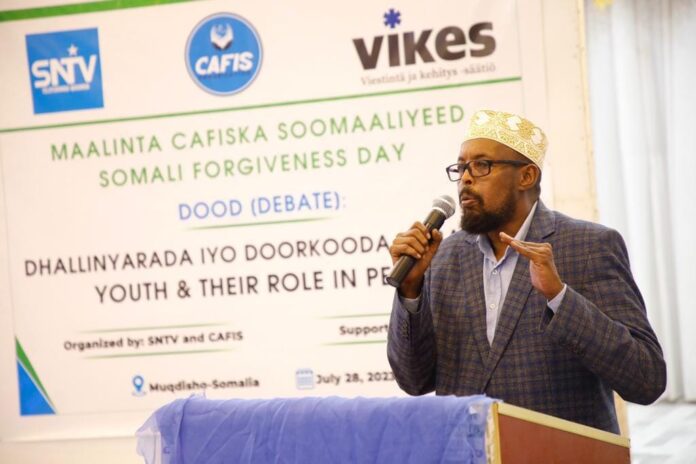Forgiveness in war-torn countries is a complex and deeply emotional process influenced by historical, cultural, and political factors. While each country’s experience with forgiveness is unique, several examples highlight the transformative power of forgiveness in the aftermath of conflict. Somalia is not different. Let us look briefly the forgiveness experience of other countries in the world who had chosen this path:
South Africa – Truth and Reconciliation:
- South Africa’s Truth and Reconciliation Commission (TRC) is often cited as a ground breaking example of forgiveness in a post-war context. Established in 1996, the TRC sought to promote national healing and reconciliation following the end of apartheid. Through public hearings, victims and perpetrators were given the opportunity to share their stories and seek forgiveness or offer amnesty. Despite its limitations, the TRC was seen as a crucial step towards fostering forgiveness and promoting a sense of unity in South Africa.
- Rwanda – The Gacaca Courts:
Following the genocide in 1994, where over 800,000 people were killed, Rwanda implemented the Gacaca Courts to handle the overwhelming number of cases. These community-based courts aimed to provide opportunities for individuals to confess their crimes, seek forgiveness, and promote reconciliation at the grassroots level. The process allowed survivors and perpetrators to confront each other directly, fostering dialogue and, in some cases, leading to forgiveness and reconciliation.
- Colombia – Peace Agreement with FARC:
In 2016, Colombia signed a historic peace agreement with the Revolutionary Armed Forces of Colombia (FARC), ending a decades-long armed conflict. The agreement included provisions for transitional justice, where former combatants who confessed their crimes would receive reduced sentences in exchange for truth-telling and reparations. This process created opportunities for dialogue, forgiveness, and reconciliation between former combatants, victims, and affected communities, with the aim of building sustainable peace.
- Northern Ireland – Good Friday Agreement:
The Good Friday Agreement, signed in 1998, brought an end to the sectarian violence in Northern Ireland known as “The Troubles.” The agreement included mechanisms for truth and reconciliation, such as the establishment of the Historical Enquiries Team to investigate unresolved cases. Through dialogue and political negotiations, it sought to address the grievances of all parties involved, promoting forgiveness, and paving the way for a more peaceful and inclusive society.
These examples demonstrate that forgiveness in war-torn countries is a long and challenging process. It requires acknowledging past atrocities, facilitating dialogue, promoting justice, and ensuring accountability. While forgiveness cannot erase the pain and suffering caused by conflict, it can play a crucial role in fostering healing, reconciliation, and the building of a more peaceful society.
Why not try it?
Somali Choice for Forgiveness
- When it comes to Somalia, forgiveness was initiated by Wali Hashi who works for Finnish National Television. This special forgiveness program is unique and voluntary and can work for the good of Somalia.
This program has been running for six years now. Today, on the 28th of July, we celebrate the 6th anniversary of Somali Forgiveness Day.
Every Somali individual is encouraged to actively participate in the activities of this day and begin forgiving others, thus enabling others to find it in their hearts to forgive you. This Somali program is different from other forgiveness programs as it represents the individual choice of each member of our society, without reward or punishment.
Its goal is to involve all Somali individuals, including families, friends, students, tribes, and regions, in order to reach a consensus and achieve complete peace for oneself. I urge the young people of this country to participate in the forgiveness campaign as it will contribute to sustainable peace and stability.
This, in turn, will pave the way for all Somalis to live in peace and work together to develop their country.
The youth of this country, who have witnessed decades of instability and conflict, should lead the way towards peaceful coexistence. Somalis share the same roots, language, and religion, making them a homogeneous society.
Somalia is the sixth richest country in terms of oil reserves.
The current generation should benefit from the country’s wealth if they change their attitude and choose forgiveness and deliberate collaboration instead of violence and destruction. It is also important to raise awareness about the significance of forgiveness.
The End
(I am honoured to be the new chairman of ‘CAFIS’).
Mohamed Mohamud Adde
An academic and Political Analyst


